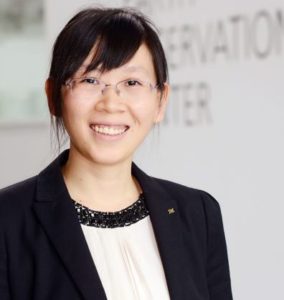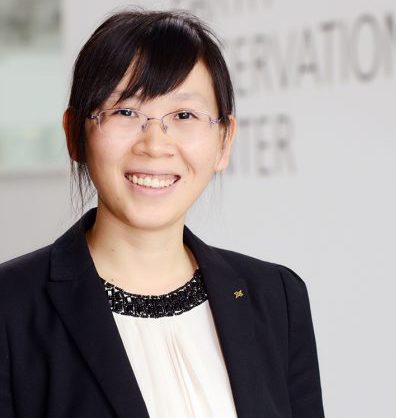 Today PRACE announced that Prof. Dr. Xiaoxiang Zhu, German Aerospace Center (DLR) and Technical University of Munich (TUM), Germany, is the winner of the 2018 PRACE Ada Lovelace Award for HPC for her outstanding contributions and impact on HPC in Europe.
Today PRACE announced that Prof. Dr. Xiaoxiang Zhu, German Aerospace Center (DLR) and Technical University of Munich (TUM), Germany, is the winner of the 2018 PRACE Ada Lovelace Award for HPC for her outstanding contributions and impact on HPC in Europe.
Prof Zhu is the professor for Signal Processing in Earth Observation (SiPEO) at TUM and head of Department EO Data Science at the Remote Sensing Technology Institute of DLR. Sinéad Ryan, Chair of the PRACE Scientific Steering Committee will present the award to Xiaoxiang Zhu on 31 May 2018 at PRACEdays18, the central event of the European HPC Summit Week in Ljubljana, Slovenia. Furthermore Prof Zhu will participate at the panel “CoEs and HLSTs, what problems can they solve for me?” on Thursday 31 May 2018 at PRACEdays18.The PRACE Ada Lovelace Award for HPC will be presented for the third time.
Prof Zhu and her team (SiPEO) develop explorative algorithms to improve information retrieval from remote sensing data, in particular those from the current and next generation of Earth observation missions. The outstanding achievement of her research work is to use satellite imagery and supercomputing to predict risks of structural degradation and damage to city buildings. Furthermore she and her team contribute to the first ever global urban models in 3D and 4D. In addition her contributions has a social impact as the improved retrieval of geo-information from EO data can be used to better support cartographic applications, resource management, civil security, disaster management, planning and decision making.
The 3D models offer the possibility to create precise, static representations of a city. Dr. Xiaoxiang Zhu and her team recognized that accurately modelling cities for risk management purposes needed a fourth dimension: time. To put “in motion” a three-dimensional, high-resolution computational model, the team needed the help of HPC. Professor Zhu’s work now concentrates on measuring temporal changes down to the centimetre or even millimetre scale to observe whether buildings have been disturbed by uplift or subsidence. To create the 4D models, the next generation of HPC systems and data storage was used. Dr Zhu and her team have gone a step further by fusing PetaBytes of Earth observation satellite data and social media data – both including images and texts. Such global data sets will lead to a giant leap for urban geography research as well as significantly contribute to the United Nations’ Sustainability Goal “Sustainable Cities and Communities”.
For her outstanding research work, Prof Zhu has won several awards, among them the Heinz Maier-Leibnitz Prize – the most prestigious German award for young scientists.
The relevance of her current work is demonstrated by the approval of the European Research Council (ERC) Starting Grant in 2016 for her project “So2Sat: Big Data for 4D Global Mapping – 10^16 Bytes from Social Media to EO Satellites” and the Helmholtz Excellence Professorship in 2017.
Prof. Zhu currently uses two allocations of 26 and 20 million core hours, respectively, on SuperMUC of the Leibniz Supercomputing Centre (LRZ).
To motivate other female scientists in the STEM field, Prof. Zhu contributes to a working group created by the board of DLR that aims to develop innovative instruments to promote women in science. In addition, she has described her experiences through interviews with publications such as Nature and Süddeutsche Zeitung. In 2015, Prof Dr Zhu won the Helene-Lange-Preis, awarded annually to an excellent female scientist in Germany in the STEM field.




